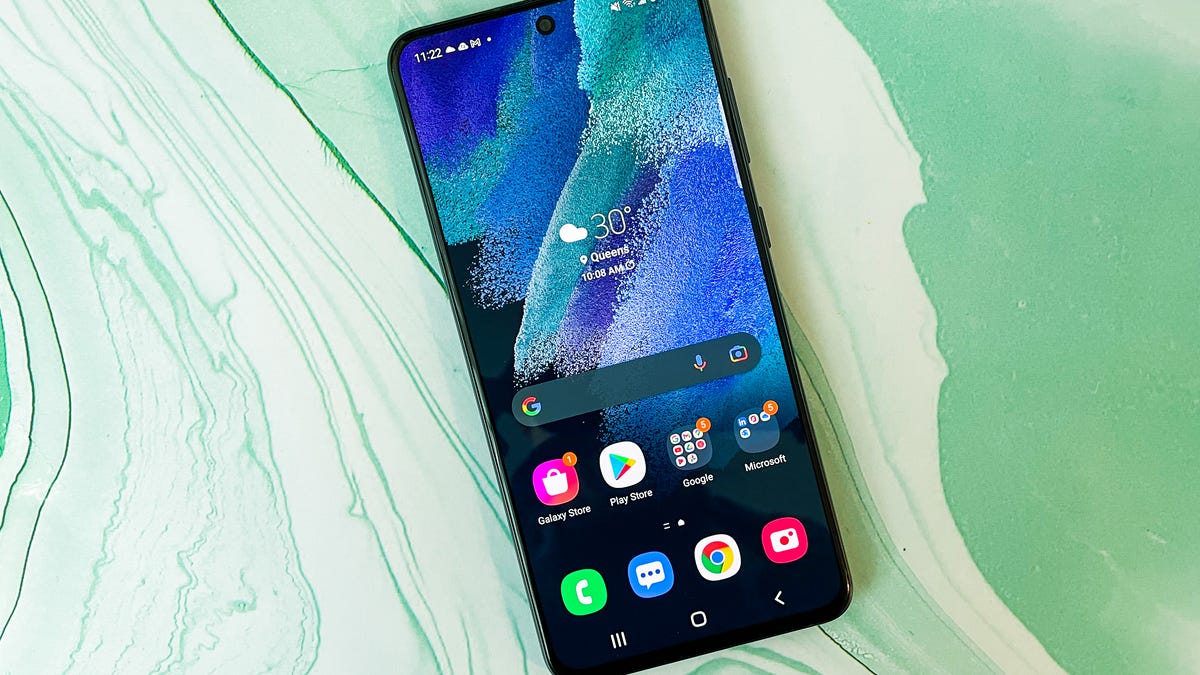Samsung's eco-friendly CES 2022 pledge: TVs, appliances will pack recycled materials by 2025
The tech giant wants its CES presentation to serve as a "call to action" on the environment.

Samsung is one of the world's largest phone makers. It doesn't want to be one of the largest polluters too.
During CES 2022, Samsung is extending sustainability measures pioneered in its mobile and audio divisions to its appliances and TVs to make its products even more eco-friendly.
This includes expanding recycled plastics in products and packaging as well as teaming up with companies like Patagonia to reduce the impact of microplastics in the oceans and environment. It continues Samsung's broader efforts to make its devices and appliances more sustainable through conventional and sometimes experimental endeavors, from solar-powered TV remotes to a blockchain reforestation project also announced during CES 2022.
"Every year, Samsung sells half a billion devices," said JH Han, head of Samsung Electronics. He added that that size carries responsibility that any changes his company makes can cause ripples across the industry. "Millions of everyday changes can make a meaningful impact for our planet."
Samsung's sustainability pledges come at a time when climate change has become a key issue across many industries including politics, business and finance. Car companies have rapidly pledged moves to electric vehicles. Meanwhile, the tech industry has begun taking on e-waste, which is exacerbated by the constant upgrades of features and capabilities in its products.
Read more: Samsung's $899 portable projector turns any surface into a smart TV at CES 2022
To offset those impacts, companies like Microsoft , Google and Meta (née Facebook) have pledged to reduce, offset or even reverse carbon usage in their worldwide offices and data centers. Apple additionally has built recycling robots, designed to rescue and reuse parts from unfixable devices, rather than sending them to the landfill. It's also touted features like recycled materials for its MacBooks , iMacs and iPhones , while pushing its suppliers to adopt green technology as well.
For Samsung, these efforts are showing up in the products you buy as it increases the amount of recycled plastic in home appliances, as well as developing new product parts, like components for washing machine tubs recycled from lunchboxes and face mask straps. Additionally, Samsung said it plans for TVs and visual displays to contain 30 times more recycled plastics than those produced last year.
Read more: CES 2022: Samsung's Odyssey Ark looks too graceful for gaming
Samsung vacuums and air purifiers will soon arrive tucked in eco-packaging, or materials that had been previously used, which the company started doing with its phones and audio products. Samsung's even exploring ways to turn that packaging into tables or cat houses. Samsung also said at CES that it wants to push its TVs and phone chargers to operate at near zero power draw while on standby, so that they consume "almost no energy" when not being used.
To help guide the company on its eco-friendly path, Samsung is teaming up with outdoor outfitter Patagonia to refine production and reduce the impact of microplastics on the environment. Other partnerships will expand Samsung's SmartThings Energy to help consumers manage the energy use of their networked devices, and even switch to more cost-efficient energy providers. Ultimately, Samsung said it hopes to eliminate single-use plastic from its smartphone packaging by 2025. It also hopes by that time to get reused materials in all home appliances and mobile products as well.
"We must build together for tomorrow," Samsung's Han said. "This is a future we must build together."



